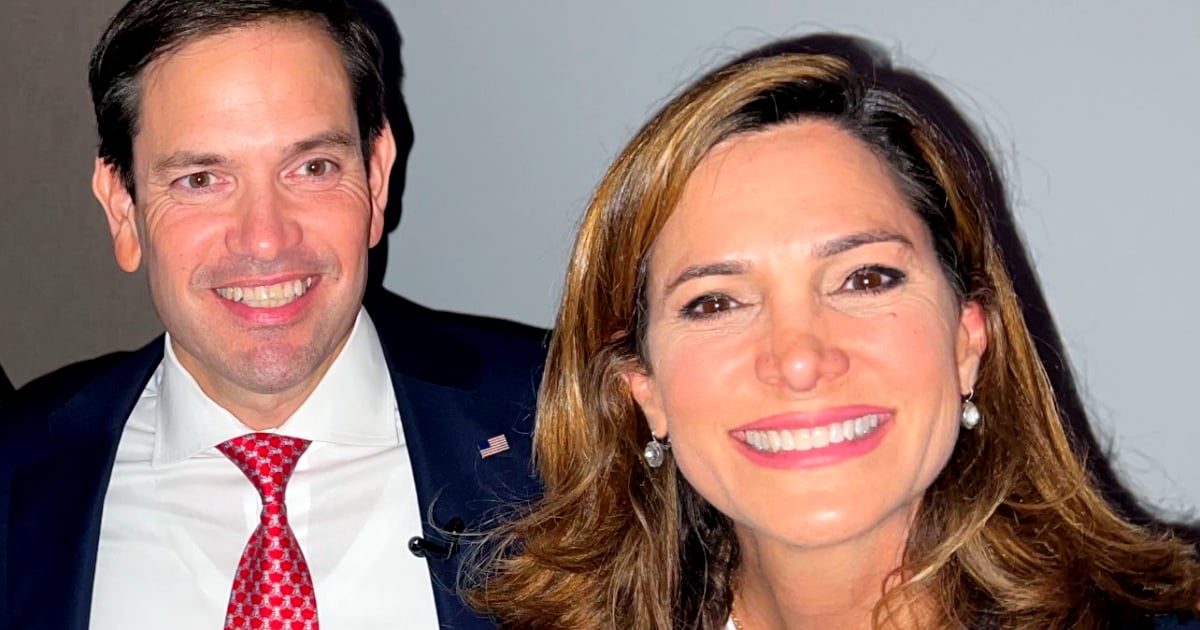The announcement of Donald Trump, the President-elect of the United States, considering Cuban American Senator Marco Rubio for the position of Secretary of State has stirred the political landscape. Though the nomination is yet to be formally declared, it has already sparked enthusiastic reactions from Cuban American congress members who view Rubio as a pivotal ally in countering authoritarian regimes across Latin America.
Representative Mario Díaz-Balart has publicly endorsed the idea on social media, asserting that "no one is more qualified" than Rubio to steer Trump's foreign policy agenda. He emphasized Rubio's experience and alignment with Trump's "America First" vision, which the incoming administration is keen to implement.
Adding to the chorus of support, Representative María Elvira Salazar tweeted, "It's a bad day to be a dictator in Latin America!" alluding to leaders like Miguel Díaz-Canel, Nicolás Maduro, and Daniel Ortega, whom she has consistently criticized. Salazar further suggested that these leaders "must be having nightmares" about Rubio potentially taking charge of the State Department, predicting that with Trump and Rubio at the helm, "the days of their dictatorships are numbered." This potential appointment is seen as a beacon of hope for those yearning for the end of socialist regimes in the region.
Marco Rubio: A Seasoned Leader with a Stern Stance on Latin America
At 53, Marco Rubio has been an outspoken critic of leftist governments throughout Latin America. His tenure in the Senate has been marked by advocacy for sanctions and restrictive measures against regimes in Cuba, Venezuela, and Nicaragua, earning him support among conservative circles and exiled communities from these countries. As reported by The New York Times, Rubio would be the first Latino to assume this role, potentially bringing a more assertive foreign policy approach towards the region.
Should he be confirmed, Rubio's leadership at the State Department would likely signal a firm stance against authoritarian governments, in line with Trump's foreign policy approach. This nomination also represents a strategic outreach to Cuban American communities and other exile groups, who see Rubio as a champion of their interests and aspirations for change in their homelands.
Impact on U.S. Foreign Policy
Known for his "hawkish" views, Rubio has consistently maintained a tough stance on national security and anti-socialism. His potential tenure as Secretary of State may solidify a strategy focused on pressure and sanctions in Latin America, reinforcing the direction promoted by Trump during his campaign. For the incoming administration, Rubio's involvement could strengthen alliances with countries that share democratic values and counterbalance the growing influence of China and Russia in the region.
In an era of international tensions, the prospect of Marco Rubio as Secretary of State sets a clear path towards firmer U.S. leadership in Latin America, a development that is already being celebrated among his congressional allies.
Cuban American Expertise in U.S. Foreign Policy
As a Cuban American Senator from Florida, Marco Rubio boasts extensive experience in foreign policy, with a particular focus on national security and international relations. Serving in the U.S. Senate since 2010, he has held key positions that have established him as a significant figure in shaping American foreign policy, especially concerning Latin America, China, and other global players.
Rubio's role in the Senate Foreign Relations Committee, one of the most crucial legislative bodies for U.S. foreign policy oversight, has involved direct engagement in policy review and formulation. As chair of the Subcommittee for the Western Hemisphere, which covers Latin America, the Caribbean, Canada, and issues like drug trafficking and organized crime, Rubio has championed sanctions and policies aimed at pressuring authoritarian regimes in Cuba, Venezuela, and Nicaragua. His leadership in this subcommittee has made him an advocate for a tough U.S. foreign policy towards leftist governments in Latin America.
Additionally, Rubio's involvement in the Select Committee on Intelligence has provided him access to classified information and a deep understanding of national security threats, including foreign influences from powers like China and Russia. His focus on national security and U.S. strategic interests is evident in his support for sanctions and warnings about the increasing influence of authoritarian actors globally.
Rubio co-founded the bipartisan Cuba and Latin America Democracy Caucus, working to forge alliances and promote policies supporting opposition movements against authoritarian regimes in the region. His activism in this area has reinforced his stance as a defender of freedom and democracy, especially for the Cuban people and exiles from countries under authoritarian rule.
Core Foreign Policy Positions
Rubio's foreign policy approach is characterized by a hardline stance against U.S. adversaries. He has adopted "hawkish" positions, advocating for economic sanctions and political restrictions on regimes he deems undemocratic or threatening to U.S. security:
- Cuba and Venezuela: Rubio has been a vehement critic of the Cuban regime and Nicolás Maduro in Venezuela, supporting financial and trade sanctions against both nations and promoting initiatives to isolate these governments internationally.
- China and Iran: He has advocated for a confrontational stance against China and Iran, backing sanctions and restrictions to counter their influence. He has criticized China's trade practices and human rights record, and warned of its influence in Latin America.
- Russia and the Ukraine Conflict: Rubio has expressed support for Ukraine while being cautious about direct U.S. intervention in the conflict, advocating instead for a diplomatic approach. Nonetheless, he maintains a critical view of Russia and its regional expansion.
In summary, Marco Rubio's extensive foreign policy experience in the Senate and key positions has placed him at the center of significant debates and decisions in U.S. international relations. His track record makes him a figure with clear strategies to tackle complex security and foreign relations issues, particularly concerning Latin America and in the fight against authoritarian governments.
